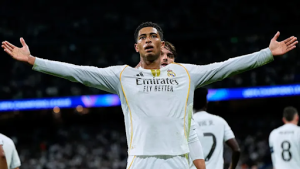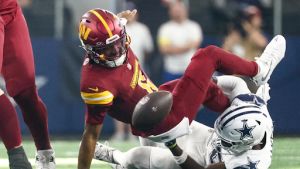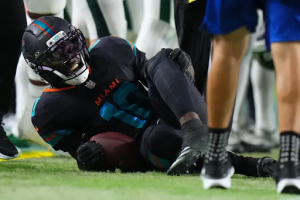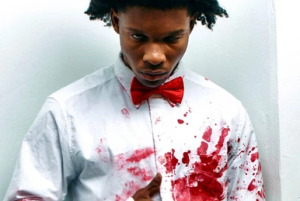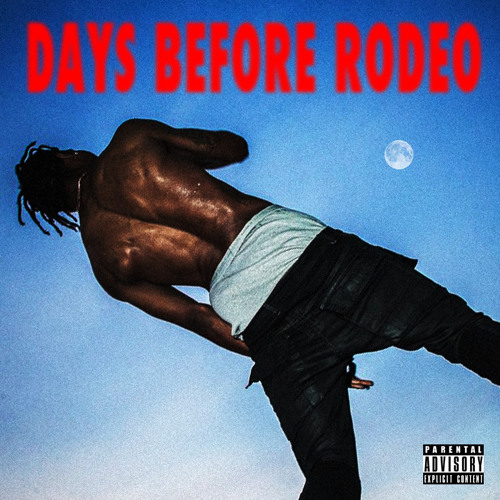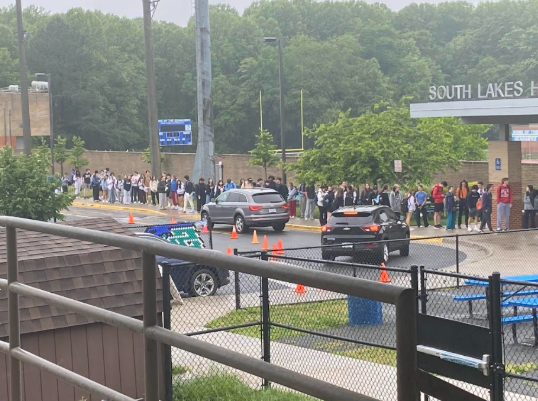A decade ago, a lot of things were different.
LeBron James was on the Miami Heat, coming off of his second NBA title.
Barack Obama was president of the United States.
Kanye West had just released the abrasively experimental Yeezus.
One of those producers on Yeezus was a little known Houston artist named Jacques Webster II. His performance name was Travis Scott.
Nowadays, people know the name Travis Scott as a critically acclaimed musical mastermind and a multi-platinum artist. However, this was 2013, and Scott was nowhere near his current level of fame. He was known only as a producer for some of the biggest names in the industry such as Jay-Z, Drake, and the aforementioned Kanye West. Scott’s debut project, Owl Pharaoh, had good ideas behind it, but there wasn’t enough substance or good music to back it up.
Days Before Rodeo, Scott’s sophomore mixtape, picks up where Owl Pharaoh left off. On the 2014 project, which was released onto streaming services recently due to it having it’s 10 year anniversary, Scott showcases his ability to create catchy, autotuned hooks over both loud, more old school style instrumentals like on “Days Before Rodeo: The Prayer” and innovative, futuristic beats, like on “Dr*gs, You Should Try It”.
Let’s start this review with “Days Before Rodeo: The Prayer.” As mentioned before, the song showcases a more old school style instrumental that implements deep 808 drums in the beginning of the song. With a continuous attack on the beat and a lethal flow, this song is an earworm that you want to listen to again and again and again. The next song, “Mamacita,” is a fan favorite track that preludes Scott’s ability to create a song that makes crowds go crazy during concerts. Both Young Thug and Rich Homie Quan deliver crucial and impactful features during the song.
“Quintana Pt. 2” attempts to resummon the magic of the original “Quintana” off of Owl Pharaoh, but it doesn’t successfully do that. It’s one of the few duds on this project. However, the next song, “Dr*gs, You Should Try It,” is an absolute grail amongst Travis Scott fans. “DYSTI” is one of Travis’ most ethereal, psychedelic, and out of body experience-causing songs in his discography. The muffled ending to the song finishes it out perfectly. An absolutely astounding song that takes your ears and mind on an interspatial journey.
The next song, “Don’t Play,” features Detroit artist Big Sean. He contributes with a meaningful feature, while Scott glides over a bright instrumental with a consistent cadence. “Skyfall,” meanwhile, delivers a multitude of immersive sounds from both Scott and the featured Young Thug, as Metro Boomin accompanies them with a soothing instrumental. “Zombies” is next on the tracklist, and it is a decent song. Travis shows versatility on the track, but it ends up being fairly unspectacular.
“Sloppy Toppy” features Migos, and they contribute to the track in a big way. While I don’t particularly enjoy the song, I see the appeal to the fans that enjoy it. With its catchy lyrics and rhythmic instrumental, it is a very well thought out and executed track. “Basement Freestyle” features a sort of EDM-trap instrumental, and Scott performs very well on the track. The song has a constant, attacking cadence, with a great build up to the song. “Backyard” is a very nice song. With a lot of the same features as “Basement Freestyle,” Scott keeps a consistent energy even coming to the end of the project. “Grey” is a bonus track that just falls short. It feels a little stale, and overall is a disappointing end to the album.
Summary
Overall, this was a very impressive sophomore project from the then up and coming Houston native. As we know, Scott and his catchy, earworm melodies would change the trajectory of rap and hip hop forever in just a few years. However, DBR was an amazing stepping stone to what would be, and still is, a massively acclaimed career for Travis Scott.
Lyrics: 6.3/10
Instrumental: 9.7/10
Experience: 9.1/10
Quality: 7.4/10
Final Score: 8.1/10

